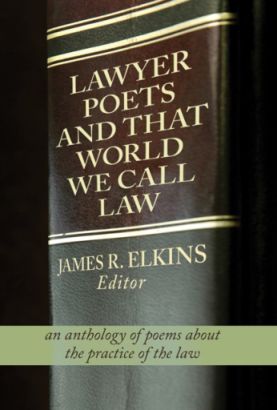|
On first impression, it seems that lawyers and poets must exist in different universes of thought and feeling, product and practice. For many lawyers and poets there may be truth embodied in the crude impression: the law leads north and poetry south; to follow the one path is to preclude the other, yet, lawyers write poetry, and poets practice law. Should we be surprised to learn that lawyers, by training and craft, attuned to the nuance and power of language, write poetry? We may have grown accustomed in this era of John Grisham and Scott Turow to the idea of the lawyer as novelist, but there is still some mystery, at times a sense of wonder, at the idea of someone who is a poet and lawyer. Perhaps there is no reason to think so grandly of our poets or so badly of our lawyers. The celebration of the one and the damnation of the other becomes rather confused when we find a man or woman embracing both. Perhaps we misunderstand our lawyers and poets, in a similar way, because we know so little of their practices, their language, and their contribution to a literate society. Whatever the relative merits and worth of lawyers and poets, we are fast becoming a society which knows far more about its lawyers than about its poets. With our great ignorance of poetry, how can it continue to play a part in our literary lives? What makes poetry, and the poet, special, different, marginal, misunderstood, ignored? We may find that the poet and the lawyer see the world in a nuanced way that demands it be addressed with a special language, language that calls attention to itself and sets itself apart by form, rhythm, and practice. Both poetry and law are acquired tastes, all the more surprising, to have such tastes acquired by a single person. What then can be said about lawyers who become poets, poets who become lawyers? First things first. We begin by identifying this country's lawyer/poets.
|

